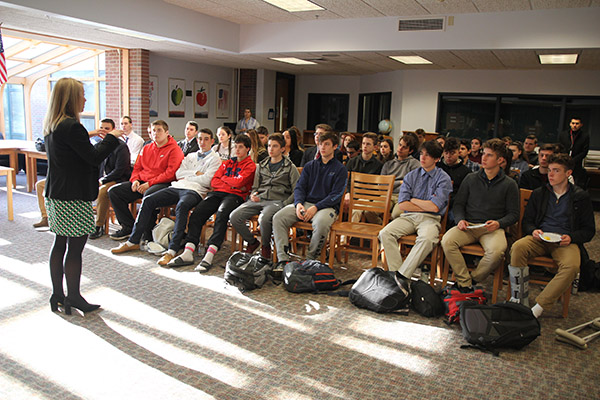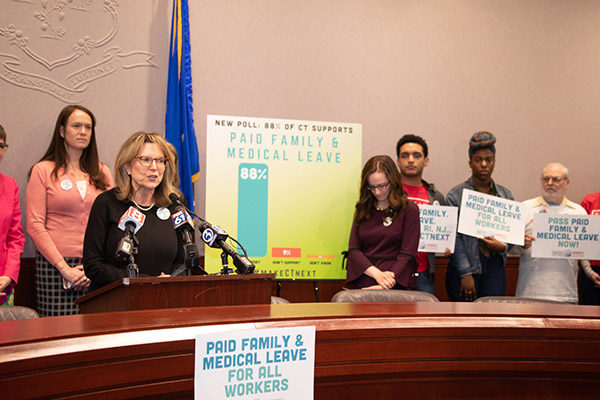Cohen Speaks to DECA Members and Business Students at Coginchaug High School

DURHAM, CT – Today, State Senator Christine Cohen (D-Guilford) met with students in DECA, as well as business students, at Coginchaug High School to talk about her career in business, her time as a politician and DECA’s impact on helping shape her career.
DECA was formerly the Distributive Education Clubs of America, however due to the growth of the club; the acronym is no longer used. According to their website, DECA’s mission is to prepare emerging leaders and entrepreneurs for careers in marketing, finance, hospitality, and management. They have 215,000 members across 3,500 high school chapters and 275 college chapters. Sen. Cohen, who was a member of DECA while in high school, told students it was beneficial for her professional career.
“Whether you go into a business career or not, become an entrepreneur, going into the corporate world or are in the trades business, the skills you develop from participating in DECA will help you throughout the course of your life,” said Sen. Cohen. She went on to tell the students, “Even as a politician I call on what I learned from my marketing and DECA coursework to help guide me. I am referring to things like public speaking and developing a plan or framework from which to move forward. These are invaluable life skills that you’re receiving right now.”
Sen. Cohen answered students’ questions and talked about life as a state senator, her career in corporate marketing, owning a small business and what inspired her to become a politician. She said she was thrilled to speak to students at Coginchaug High School.
“I want to thank Coginchaug High School for giving me the opportunity to speak to such an inquisitive and eager group of young people,” said Sen. Cohen. “I am confident they will continue to have a rewarding experience as DECA members and business students. From there the possibilities are endless, but I’m certain and excited that they are shaping our future.”


